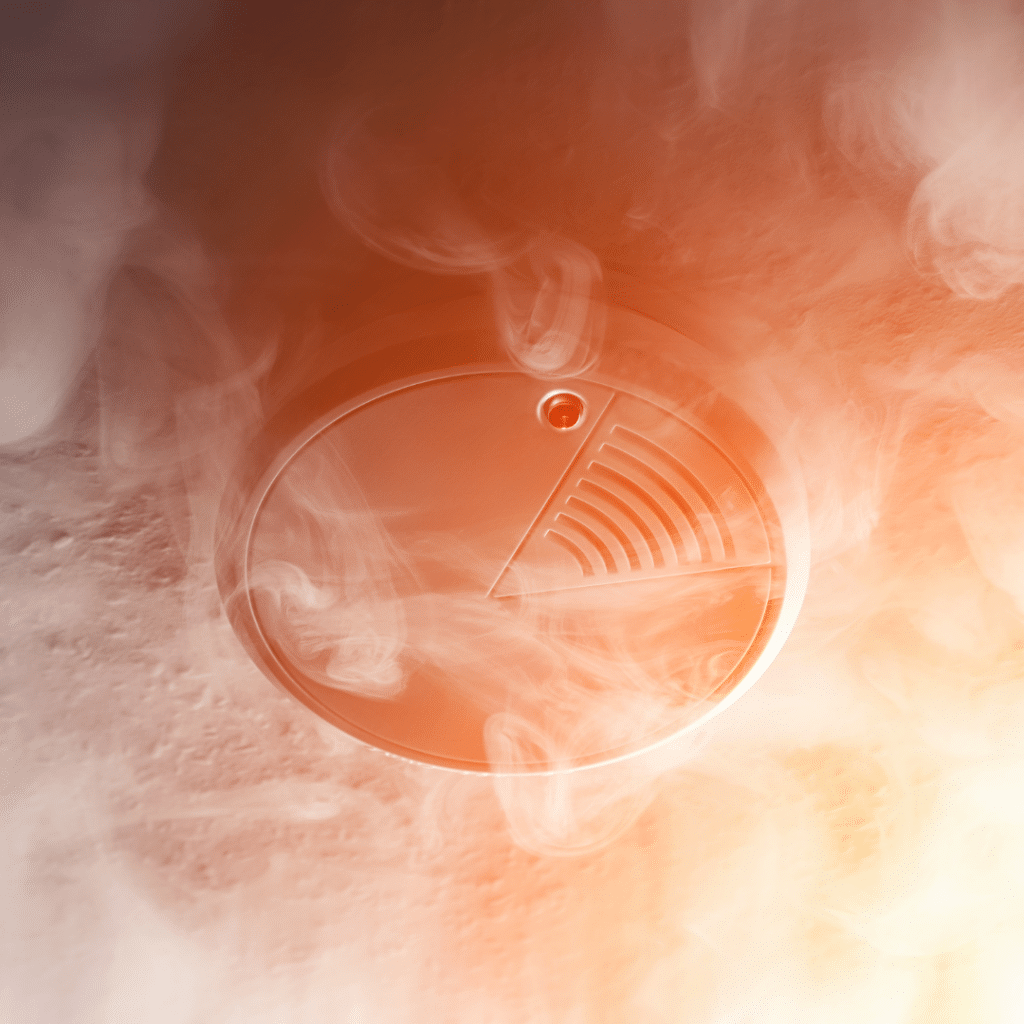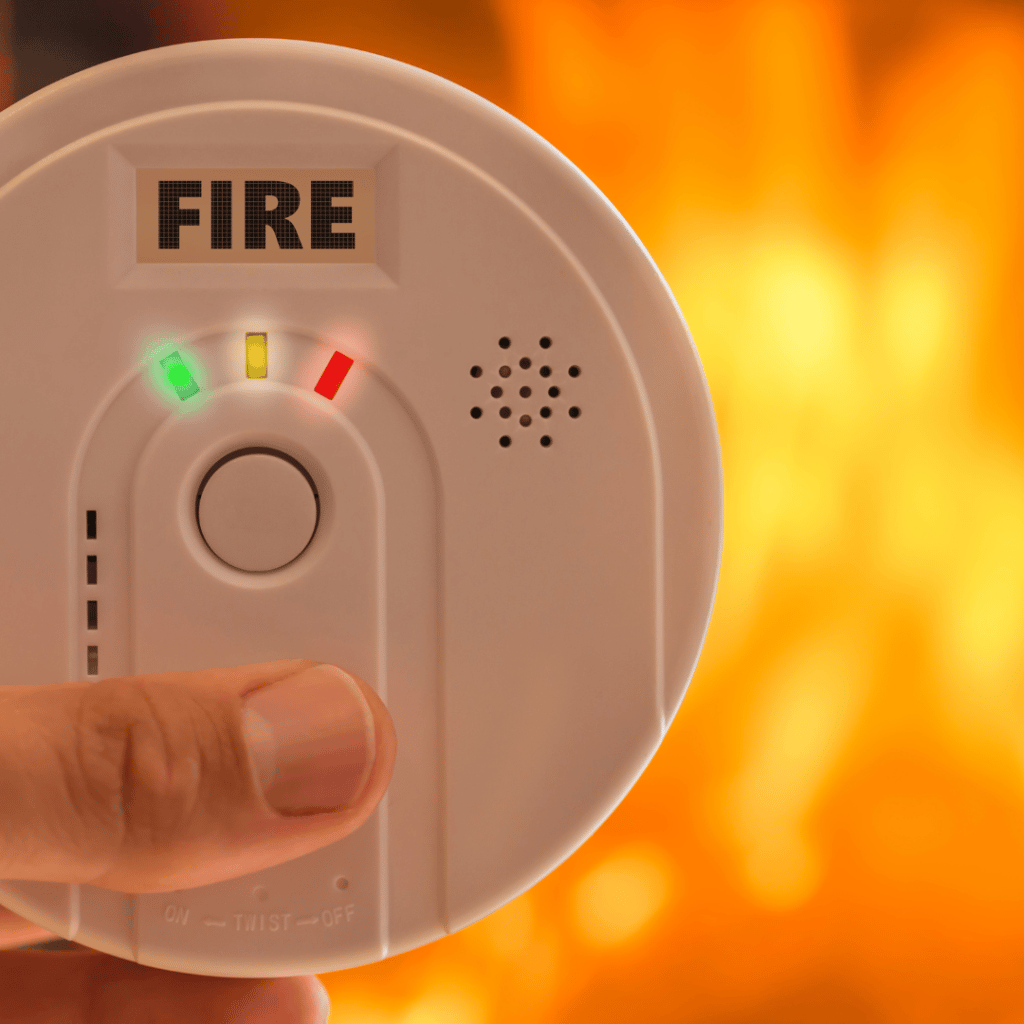Fire Alarm Systems are essential to have in all properties to help protect against imminent fires. As a fire can occur when you’re least expecting it, investing in appropriate fire detection systems can alarm you if there is a fire and can ultimately save lives. Therefore, the importance of fire alarms systems is that they monitor your home 24/7 and are the first detectors that can defend you against fires and allow you to evacuate quickly.

How Does A Fire Alarm System Work?
Fire alarm systems work on the same concept, with a specialised sensor detecting smoke, heat, or a spike in carbon monoxide levels, which then activates the alarm and informs those in and around the premises.
Another importance of a Fire alarm system is that they are usually wireless, with heat or smoke detectors wirelessly transmitting signals to a control panel through radiofrequency. Heat detectors detect the presence of excessive heat using thermistor technology. There are also particular sensors that detect a rise in carbon monoxide levels through a variety of techniques. Some even employ biomimetic cells!
Purpose Of A Fire Alarm System
Your fire alarm systems serve four main functions in protecting your property and its residents. The importance of fire alarm systems include:
Fire alarms are intended to detect indicators of fire, such as heat and smoke – The technology detects these dangerous indications around the clock, so your home is still being monitored even when you are not around. Many alarms additionally include a manual pull or button to trigger if a fire is spotted but not detected.
Alert Occupants – When a fire is detected, the alarm will activate features such as light or sound blasts to warn the occupants that they are in danger. These warnings are usually audible, visible, or both. Sound alarms are loud, and light alerts are often highly bright and difficult to miss, so that everyone in the house is warned.
Manage Risk – Once the fire has been detected and the alerts have been issued, some fire alarm systems can assist in managing risk or the spread of the fire. These responses could include turning on fire suppression systems, turning off airflow, or closing automatic doors.
Notify the authorities – Notifying the nearest fire station is a fourth line of defence that certain alarms are capable of. This allows people to focus on getting out of the house while the system alerts the relevant personnel. This saves time by allowing the fire department to get on the road as soon as feasible.

Different Types of Fire Alarms Systems
There are various types of Fire Alarm Systems that are all designed with different functions. These include:
Conventional Fire Alarms: These systems are ideal for small to medium-sized premises and feature simple fire alarm operation and testing facilities. They will even work if the power goes out because of the built-in battery backup.
Addressable Fire Alarms: These are essential in hospitals and nursing homes and are suggested for larger systems. Each detector is identifiable by an address, making it simple to locate a fire alarm or a defect. These technologies are entirely extendable, allowing the facility to be future-proofed in the event of a change or extension.
Radio / Wireless Alarms: Wireless fire alarms are now on the same level as wired fire alarms, but with the added benefit of quicker installation time and no building work or unattractive cable runs. For peace of mind, they constantly “speak” to the fire alarm panel and are fault monitored.
Invest in High Grade Fire Alarm Systems
At Brookside Fire Service, we specialise in providing Fire Alarm Systems alongside an installation and maintenance service to ensure both residential and commercial properties are fully equipped. Head to our Fire Alarm section to read more about the importance of fire alarm systems and how we can help.
